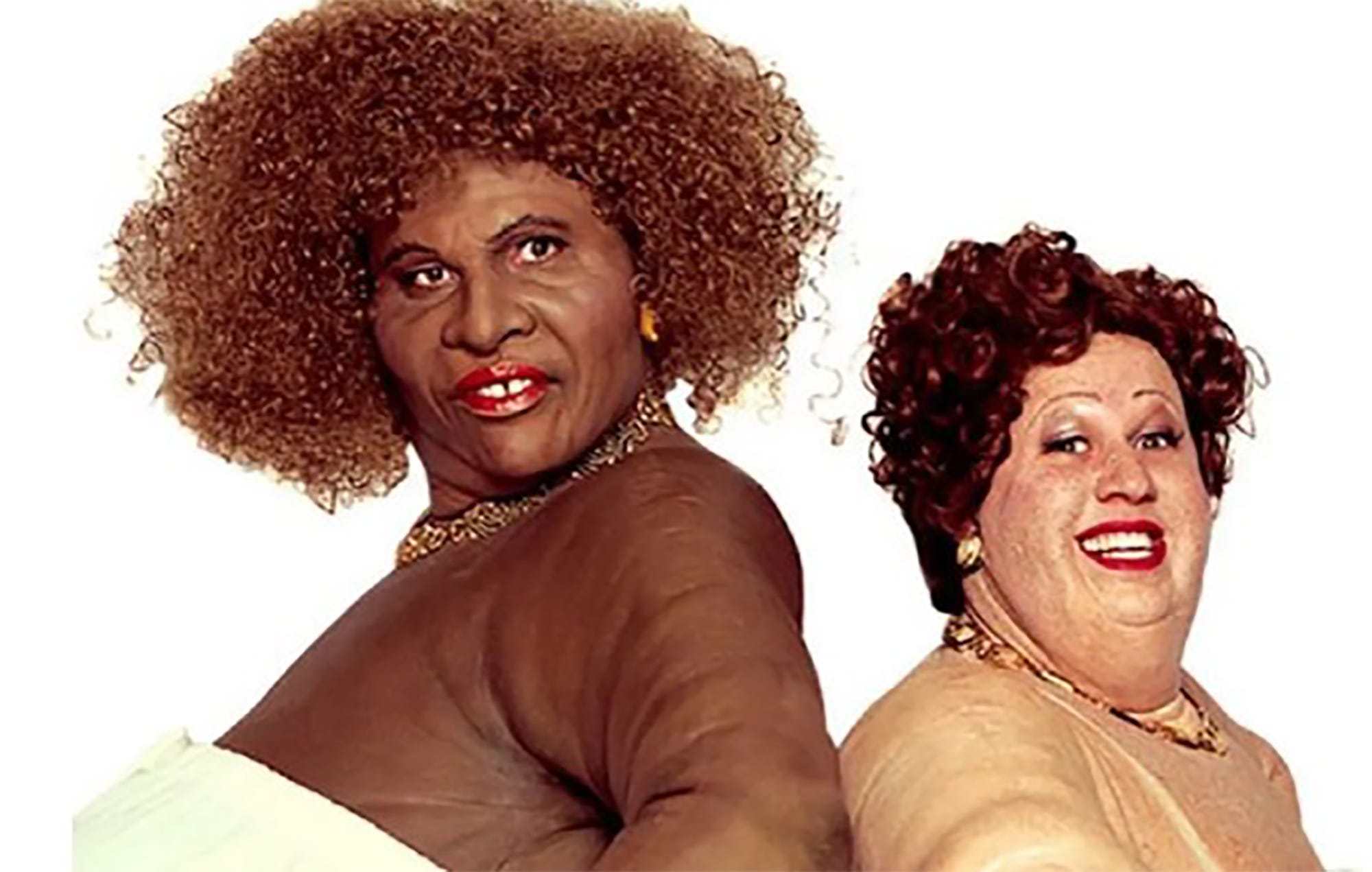You've probably heard that Matt Lucas and David Walliams' sketch shows Little Britain and Come Fly With Me have been pulled from the BBC iPlayer and Netflix because, as the BBC said, "times have changed since Little Britain first aired".
That's a euphemism for "it was racist, and people have remembered all the blacking up". It might have had something to do with comedian Lolly Adefope gently reminding Walliams on Twitter that he blacked up and put on a fat suit to play Desirée, a love rival to Lucas's similarly sized Bubbles.
If you need a reminder of what the gag was with Desirée, listen to the laughter here: Walliams turns up, there's a roar of laughter. He's not even said anything. The joke is that he's blacked up.
It's not the only programme that's been pulled because it features a white guy pretending to be a person of colour, either. Four of Australian comedian Chris Lilley's shows – Summer Heights High, Angry Boys, Jonah From Tonga and We Can Be Heroes – have been taken off Netflix in Australia and New Zealand for similar reasons. (Summer Heights High and We Can Be Heroes are still on the iPlayer, slightly confusingly.)
Hot on their heels, The Mighty Boosh and The League of Gentlemen have been taken off Netflix for using blackface, too, and some very dense people on Twitter are ready to fight over The Inbetweeners coming off YouTube, despite it still being on All4 and Britbox. These must be frightening times for anyone who felt that British comedy peaked with Jay Cartwright's first use of the word "clunge".
There's some resistance. If we don't take a stand for comedy now, the logic runs, then one day – decades from now – a child rummaging around the charity shop shelves will innocently dust off a copy of Little Britain: The Video Game and immediately be sent to the gulag. For some reason, Harry Enfield's chosen this as his racist hill to die on, defending blackface on Radio 4's Today programme with the old combo of blithering, a racist slur, and talking over the comedian Ava Vidal, who was there to explain why blackface is wrong and who referenced the cruelty shown to Sarah Baartman, a black South African woman, as proof of the long, poisonous tradition Desirée stood in. That'll show 'em!
But Little Britain was where this revision of tastes started and its deletion is no small thing. Between its first TV series in February 2003 and its third in November 2005, Little Britain was a phenomenon. Elton John, Kate Moss and Stephen Hawking made guest appearances. The year-long Little Britain Live tour played to nearly a million people over 243 dates in 2005 and 2006. Vicky Pollard is cited seven times in Hansard.
At the time, though, the racist elements of Little Britain were generally seen as the least of its sins. Victoria Wood called it "very misogynistic" in 2005; Pollard was central to Owen Jones's study of classism, Chavs; Caitlin Moran attacked its mockery of fat bodies; Dr Adrian Wagg, chairman of the Continence Working Party, condemned the sketches where an old lady wet herself: "Urinary incontinence is not a joke for the thousands of mainly older people affected with this embarrassing and life-destroying condition."
But look back at reviews of its third series, when Desirée first appeared, and the racism is glossed over.
"Never mind that Lucas’s latex lovely Bubbles De Vere was doing little new, even though she was joined by her ex-husband Roman (Rob Brydon) and his new wife Desirée (Walliams, blacked up)," said The Times's Dominic Maxwell. "Just soak in Lucas’s lascivious delivery, drink in Brydon’s suave vulgarity."
"You couldn't call it racist," declared Harry Mount in the Telegraph. "It isn't like Bernard Manning being rude about blacks, and being completely unrepentant about it. The target isn't blacks; the target is people who are rude about blacks."
That might be the most disturbing thing about the whole Little Britain furore. Faced with a sketch show that leveraged pretty much every facet of bigotry for its comedy energy – remember Anne, the 'eh-eh-ehhhh' woman? – racism against black people was the least of any reviewer's worries.
Its defenders have spent a lot of time invoking passages of 1984 about the destruction of all culture that doesn't conform, which is ironic given that we've been quite happy to let Little Britain sit in its own memory hole until very recently. Had anyone been pining for its return before the Brexit-based radio special in April? No. We'd been hoping it would stay wherever it had been, and that we'd not have to think about it.
The "But it's comedy!" argument feels quite similar to the "But they should've got that statue removed democratically!" debate, insofar as they're both means of kicking the actual issue into the long grass. It shouldn't need restating that blacking up is racist, and it was definitely racist when Walliams did it. Another of Lucas's characters, Ting Tong, a Thai woman, was very racist too.
That it's taken 15 years to acknowledge it and stick it in the bin is shameful. If this is how white Britons react to having a sketch show they weren't watching taken away, we're even less ready to confront racism than it seemed. Little Britain's gone. The statue's in the drink. Deal with it.
Like this article? Sign up to our newsletter to get more delivered straight to your inbox













